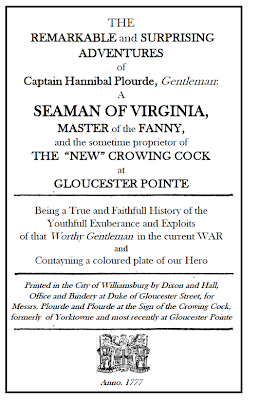 |
| Virtual Represenation: Legal Thievery[1] |
A whig satire of 1795, hostile to the Crown and Government, friendly to America and the French Republic. Some things never change...
A Political Dictionary
explaining the
TRUE MEANING OF WORDS
illustrated and exemplified in the
LIVES, MORALS, CHARACTER and CONDUCT
of the following
MOST ILLUSTRIOUS PERSONAGES,
among many others.
The King, Queen, Prince of Wales, Duke of York, Pope Pius VI. Emperor, King of Prussia, The Tigress of Russia, Dukes of Brunswick, Portland, Richmond, Newcastle, London. Earls Chatham, Fitzwilliam, Darlington, Spencer, Mowe, Chesterfield. Lords Grenville, Mornington, Moira, Mountmorris, Mulgrave, Fitzgerald, Harvey. Judges Kenyon and Loughborough. Hon. Frank North. Sirs George Saville, Gilbert Elliot, Francis Molyneux, Watkin Lewes, Roger Curtis, Sydney Smythe, Francis Sykes, Richard Hill. Landgrave of Hesse Cassel, Madam Schwellenbergen. Messrs. Pitt, Fox, Burke, Dumourier, Warren Hastings, Wyndham, Powis, Dundas, Thornton, Wilberforce, Reeves, Arthur Young, George Hanger, Charles Jenkinson, Colonel Tarleton, Brook Watson. Aldermen Curtis, Anderson, Le Mesurier, Sanderson. Bishops and Clergy. Charles I. and Louis XVI.by the late
CHARLES PIGOTT, Esq.
author of the Jockey Clubs, &c.
London; printed for D. I. Eaten, No. 74. Newgate-Street.
MDCCXCV
 |
| A voluptuary (The Regent) under the horrors of digestion Js. Gy. design et fecit.[2] |
Absurdity
—Mr. Pitts’s surplus fund, his Majestey’s civil list, and the combination of kings, to restore priesthood, aristocracy, and monarchy in France.
Budget
—new taxes; an increase of influence to the Crown, and of misery to the Poor.
Crown
—a jewel that dazzles he eye of the volgar by its extrinsic splendor; the gewgaw and pageantry which it displays, reconciles the nation to a bauble which costs a million annually to support, drained from the virtue of industry, and the sweat of labour. Partial splendour, public calamity.
Drunkenness
.—Messrs. Pitt and Dundas, when so intoxicated with liquor, as not to be able to articulate their words, engaging a vast majority in the House of Commons to precipitate their country into a war with France; the festivities of Brighton, Holwood, Wimbledon, Gordon House, Downingstreet; the Duke of Norfolk drinking common gin with the Royal Sovereign, at her lodgings in Strandlane.
 |
| A Response to the Suspension of Habeus Corpus, Newton [3] |
Equality
—in the Alarmist vocabulary, signifies every thing morally and physically impossible; equal wisdom, equal strength, equal wealth, &c. &c. but equality truly signifies, both in France and England, as well as every where else, “equal rights;” a right of every citizen, not disqualified by nature or crime, to the protection and benefits of society; a right of voting for the election of those who are to make laws by which he himself is to be bound; by which, his liberty, his property, and his life are affected, and an equal right of exerting to advantage the genius and talents which he may possess--the equal rights of nature.
Favourite (Royal)
—Weak and arbitrary princes, from the first establishment of monarchy, down to the present day, have always had their favourites, their Minions, there Knights of the Back Stairs; many of who have eventually fallen just sacrifices to the vengeance of a people who could no longer endure their outrages and enormities. A wise Prince has no other favourites than the people. He can have no right to squander superfluities on favourites,—to keep up prodigal establishments for them, while the nation is crushed by a weight of taxes, and a majority of it reduced almost to a want of necessaries: but, as nothing an be more capricious than a monarch’s fancy, the situation of these gentry is not the most enviable or secure; and the examples yielded by history are rather a drawback on their tranquillity. They may be compared to sun-dials, which, while the sun shines upon them, all the world are eager to consult, but are at once forsaken, and left to their fate, as soon as he has withdrawn his rays.
Grandmother
—a term of reproach never to be forgiven, if applied to a lady of fashion.
Habeas Corpus
—hitherto considered as the palladium of British liberty, but now, by an act of Parliament, suspended. On account of this suspension, Messrs. John Horne Tooke, Hardy, Thelwall, Joyce, Richter, and others, have for many months languished in prison, without any specific charge, and without, as their first commitment, any prospect of being brought to trial. If Britons can thus be treated by ministers, what is liberty? what is despotism?
[1] Virtual Representation, 1775. Pub. Unk. 1 Apr 1775. Lord Bute aims a blunderbuss at America, with an MP giving Government the use of Amerca's property. http://www.loc.gov/pictures/item/2004673310/, accessed 28 Dec 2012.
[3] http://www.loc.gov/pictures/resource/cph.3g08788/, accessed 28 Dec 12. John Bull breaks wind at a broadside of King George, in response to Pitt's intention to suspend Habeas Corpus.

















